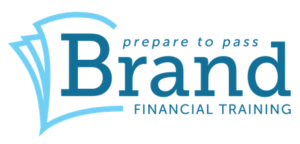Professional Paraplanner has teamed up with Brand Financial Training to answer your questions around the exams scheduled for 2021 and to offer some top study, revision and exam preparation tips.
In our last Parameters survey we asked you for the questions you would like to ask the experts around exam and qualification training. Over the course of this week we tackle a range of those questions.
In Day 3, we answer your questions around techniques for studying and revision and, further down the page, on exam preparation.
Paraplanner Questions:
- What tips do you have for retaining information when studying?
- What is the memory palace technique and how can you use it for CII exams?
The Brand Financial Training member answers:
The good news is that brains can be trained, and memory improved, in the same way we can strengthen any muscle and to help train your brain you can use memory techniques so that you can store and retrieve crucial information when you need it most, e.g. in an exam situation. Here are some for you to try out:
‘The Loci Method’ otherwise known as the ‘Memory Palace technique’
Loci is the plural of the Latin word locus, for place or location. This is a way of remembering things by placing each item you wish to recall on a point along an imaginary journey. Remember this information in a particular order by retracing your ‘steps’ along the same imaginary route. That could lead, for example, through your house, with each location along the way being a familiar spot such as your kitchen. Each item on the list of things you want to recall is then associated with a place. Some believe this technique to be the most effective memory technique there is.
Memorising Numbers
There are various ways of doing this. The Dominic System, for example, invented by eight-time world memory champion Dominic O’Brien, is a way of recalling long numerical sequences. It works by converting numbers into letters and then images, which are easier to remember.
Under the Dominic System, though, the numbers one to nine are assigned letters of the alphabet from A to N. So the number 11, for example, becomes AA, which in turn can be recalled by thinking of an image of Andre Agassi playing tennis. Or 33 is Charlie Chaplin, CC. Meanwhile, the number 3311 could become a mental image of Charlie Chaplin playing tennis.
Lifestyle and Memory
Finally, it’s probably no surprise to learn that enhancing your overall health, for example with better sleep, frequent exercise and a good diet, will all improve the health of your brain, including memory. (As well as, of course, your physical health, so it’s a double win.)
Questions
- How can I best prepare in the days leading up to the exam?
- I’m a typical ‘leave it to the last minute’ reviser. How can I stop sabotaging myself with each and every exam I take?!
Answers:
The first thing I would say is to ensure you are using the right revision techniques. So, essentially, it’s not just about the hours you graft, but what you do with them. As well as spending quality time on your revision with full concentration, you need to ensure you adopt the most appropriate study method for you.
Using the right revision techniques is key, actively self-testing and quizzing yourself, making revision notes rather than just rereading, plus writing and using flashcards are likely to be helpful in the long term in terms of retaining information. Over-reliance on highlighting notes or rereading passively tend to be less effective.
Target your weaker area, so know and understand your weaknesses and target them with laser-like precision rather than sitting down to ‘revise to pass the exam’. Building a mind map of your existing knowledge and testing yourself on areas you’ve not yet fully mastered will help to identify any weaker areas.
Revising in bursts of no longer than 30 minutes, with breaks in between, is likely to be effective when you combine this approach with techniques that suit your own personal learning style(s). Any session needs to be short enough for you to give full attention throughout, interspersed with breaks so the brain has time to consolidate learning.
The Pomodoro ‘tomato timer’ technique, which guides you towards 25-minute sprints of activity is certainly one good way of bringing a specific end to each revision session. Even a bus or train journey can be used as a limited block of time during which you can go over a specific topic. Or you could take an exam question with you (in your head!) to ponder over on a brisk 30-minute run or walk.
In summary, it’s not about spending every waking moment revising – just doing it better and in shorter bursts. The good news is that if you pick the right revision methods, less really can mean more.
My note to the last minute crammer:
Research has shown that the cramming process stores information in the short-term memory, so even if you manage to scrape through your paper, you won’t actually recall what you’ve learned afterwards.
If circumstances have conspired against you and you need to cram, focus on what needs to be done and leave out any frills you no longer have the luxury of being able to cover. Cut the fat from your revision by focusing on techniques such as flashcards and bulleted summaries which condense information.
Committing information to the memory, and truly understanding it, takes time. So if you spread out your revision on a specific topic, for example spending an hour on the subject over 10 days, it’s likely to be a lot more effective than if you spent the same 10 hours in a single day.
This ‘spacing’ effect is helpful because the longer periods between revision sessions give you more time to relearn the material. Unfortunately, last-minute cramming doesn’t achieve the same results.
Reconsider pulling the all-nighter! The brain simply isn’t wired up to take in huge amounts of fact and figures on no sleep or to retain them properly for an exam, even if it is only the next day. Nor is your mind designed to perform at its best late at night.
By all means, skim flashcards and notes in the final hours or minutes before you walk into the exam room. However, that should just be for refreshing your memory, and not for learning new things from scratch.
For more useful tips on exam or revision technique go to our blog and search ‘revision’
(Thanks to Lysette Offley at Genius Material who helped us with some of the above revision and memory tips).
————————————————–
About Brand Financial Training
Brand Financial Training provides a variety of immediately accessible free and paid learning resources to help candidates pass their CII exams. Their resource range ensures there is something that suits every style of learning including mock papers, calculation workbooks, videos, audio masterclasses, study notes and more. Visit Brand Financial Training































